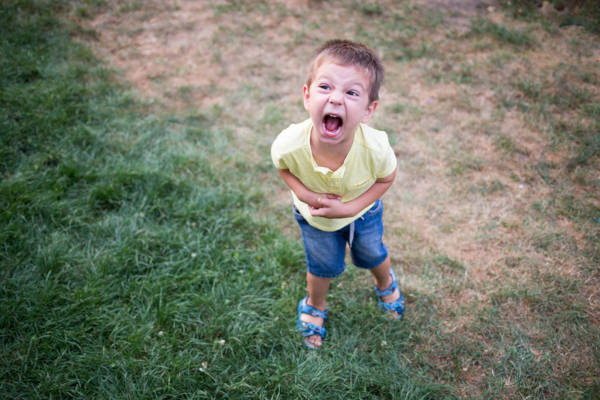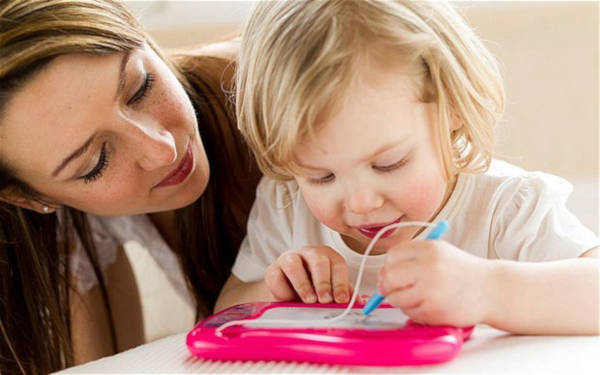As the old saying goes, it takes a village to raise a child. Anna Bykova is just like any other parent who perhaps thinks the same. This is why she has several useful tips for all of us to raise our little devils. However, we must state why her advice is valuable though. It is because she is a psychologist who has also authored plenty of best-selling books. She is of the belief that it is important to let a child do things on their own so as to make them independent as well as enhance their motor skills.
This is certainly a parenting technique we all can get behind. Can we not? Here are some more things which can serve to be fairly useful for you as well as your child during their growing years:
1. Teach The Child To Use The Potty
Cleaning up after a child can be the most annoying thing when you are tired or are eating or just not in the situation to really help the child. But this can be done with the right steps and some patience.
- Keep a child toilet at a spot where your child can see it easily. Do not force the child to use it.
- Always remember to positively reinforce their behavior by cheering them if they ever decide to use it. The result in itself is not necessarily important but the learning is.
- Using the loo can be made into a story with their favorite characters to encourage the child to poop as well as find dry pants comfortable to wear.
Taken from An Independent Child, a book by Anna Bykova.
2. Take Precautionary Measures To Avoid Temper Tantrums
- Make sure you hide anything and everything your child is not supposed to use, touch, or see.
- If the child does come across something they should stay away from but expresses interest, present them with a new and better object. A bubble dispenser, a balloon, or even a piece of origami paper can be life saviors in many situations.
- Sharp objects such as scissors are dangerous for any child. But in the unfortunate event that a child really wants to play with one, it is acceptable, but only under adult supervision and control. It is necessary to not have several undoable things as the child can get irritated.
- Present them with alternatives and they will do what you want them to do. For instance, you may ask the child, “Will you arrange your book first or the pencils first?” Sadly enough, this is not a feasible long term practice, because after passing a specific age, the child will very likely not perform any of the activities.
3. Manage The Tantrums of The Child
In case the tantrum was inevitable, you have to deal with it. One can:
- Divert their attention to other things.
- Develop a routine or ritual to calm them down. Generally, each family has this one ritual that they undertake when a child is not calm. It could be a game, a story, or even a song. For instance, the mother or the father can kiss the pain away, or maybe a magic spell or potion can cure all their sadness.
- Let the child be. In case the methods you may have developed are showing no results, let the child be by themselves. That is of course in case there are no other health issues involved, such as asthmatic seizure or epilepsy. Do not lock the child up in a confined space or scold them. Let them know it is alright if they want to cry and you are ready to do something fun when the child is done crying.
4. How To Approach Picky Eating Habits?
Food is a universal need for all beings. In case you ever” forgot” to feed an infant, they will cry and scream until they’re fed. It is important to understand just like you, as an adult, know how much and when you want to eat, so does a child.
- Offering vibrant looking food to children is a great way of encouraging them to eat. What is even more significant is to let them not be persuaded or forced to eat. Give the child time to become hungry. Their appetite will be better if the food that is given has no forcefulness or negativity around it.
- In case you involve your child in the process of making food, let them try a variety of ingredients as well as pick out what they would like to eat from the market. The child themselves will know what they like to eat and life will just be easier for you.
- It is vital to remember that you must never force a child to eat in order to express concern. They will grow an aversion and fear when it comes to food as well as grow animosity towards you. The child is not their worst enemy and will know how much they want to eat. A lot of us should think about it, how is your relationship with food now and how did you feel when your parents might have forced you to eat something?
5. Excite Their Taste Buds and Appetite
- Discourage snacking and quick meals if your kids are not eating their meals at the right time.
- Always avoid food with artificial flavor and taste boosters. Getting used to an overdose of flavors will make healthy and home-made foods taste bland.
- Sugar is bad for all of us, but we still eat it. In case you let your child eat sugar, make sure they do not eat too much sugar. As you may know, sugar addiction is real and very harmful to the long-term health of the child.
- Encourage activities like walking and exercising. This will enhance their appetite as well as make the kid healthier. Not to forget that it is good for you too in case you get some exercise in the process too.
6. Encouraging Good Sleeping Habits
The child is going to experience difficulties when trying to fall asleep since the habit of going to sleep while crying is a hard one to get rid of. They might perceive sleep as punishing, or even feel that the need for sleep is just a useless requirement made arbitrarily by the parents.
- Body-centric therapy. Make them sway gently by placing a hand on the thigh and calmly fixing the legs and placing the other one on the shoulder. This will relax their muscles and also calm their nervous system.
- Joint breathing. Match the breathing of the child with your hand on their body. Eventually, you will take deeper breaths and keep swinging the child. The deep and slow breaths, as well as the swaying motions, will make them sleep like magic.
- Boring reading. Subtle phrases about relaxing and sleeping will put subconscious messages in the child’s brain about falling asleep. Reading passages slowly with pauses to deepen your breath whilst also slowing the reading pace will make children feel drowsy and fall asleep.
7. Acclimatize The Child To Sleep By Themselves
- Associate an object to calm and deep sleep. The object can be a teddy or a small pillow. It can be anything that the child has with them when they are about to go to sleep. Then it is going to be easy for them to go to sleep not just in their own space but even in unfamiliar places.
- Help them get adjusted to their new sleeping space. In case the child sleeps with the parents, either one of the parents can accompany the child in their new bed when sleeping. Eventually, with time, the child will be able to sleep by themselves.
- Promote enthusiasm. In case the child is not enthusiastic about their separate space, let the child accompany you to purchase their own bed. Let the child choose any fixtures that they want or even a bedsheet or blanket of their liking. It will make them appreciate their own space better.
All of us have our own styles of parenting and this article is not to say one is better than the other or some of them are wrong. But we are sure that all parents want the very best for their child.
Featured Image Illustrated by Xenia Shalagina for BrightSide.me
















